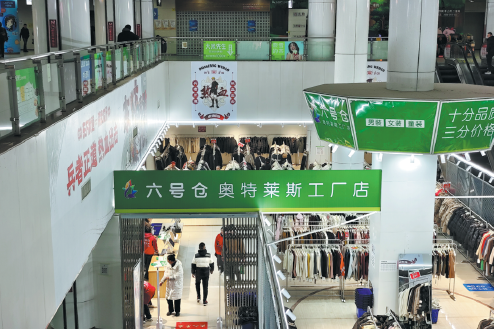Alibaba-led group plans buyout of iKang Healthcare

An investment consortium backed by Alibaba Group Holding Ltd founder Jack Ma has officially resumed its privatization bid for China's iKang Healthcare Group Inc, after two years of stalemate following a takeover war.
Alibaba's investment arm and Yunfeng Capital, a private equity firm co-founded by Ma and Target Media head David Yu, had proposed to delist iKang from Nasdaq in an all-cash transaction, the physical checkup specialist said in a statement on Monday.
The duo are offering $20 per American depositary share to acquire all of iKang's outstanding shares, a price tag that stood at the lower limit of an initial proposal back in 2016.
The company said that a special committee of independent directors will carefully consider and evaluate the proposal, with the assistance of the committee's independent financial and legal advisers.
The clinic chain, however, clarified that no decisions have been made with respect to the Yunfeng-Alibaba proposal. Neither Yunfeng nor Alibaba is available for comment.
The latest development comes nearly two years after the pair joined a takeover battle that included other investment camps, such as major rival Meinian Onehealth Healthcare Group trying to buy out the Nasdaq-listed firm.
Upon a successful buyout, the entity is likely to be incorporated into Alibaba's healthcare arm, as physical examination can serve as a key access point for massive health-related data for Alibaba to analyze and capitalize on, said Neil Wang, president of Frost & Sullivan China.
It would be rational to accept the offer and get delisted now, said He Xiaopeng, research director at Morning Whistle Group, a Shanghai-based research firm on cross-border acquisitions.
"iKang's market cap was roughly $1.29 billion (8.17 billion yuan), a sharp contrast to archrival Meinian's 64.4 billion yuan. It's safe to say that iKang's share price is too devalued to reflect its real strength," he said.
So far, iKang has established 110 medical centers in 33 cities in China, including major cities like Beijing and Shanghai, to provide high-end preventive healthcare.
In 2014, the firm secured 13.6 percent of market share in terms of revenue, according to Frost & Sullivan.
"While the offer price is not raised from two years ago, it is an acceptable choice for its controlling stakeholders because only by teaming up with Alibaba can iKang obtain the sufficient resources to counter rival Meinian," he said.
According to a research by consultancy McKinsey, China's demand for private healthcare services will further increase in the next two decades, with the annual growth expected to reach 11 percent, due to the increasing middle-income earners more willing to pay for premium care.
In addition to Alibaba, more internet giants are trying to tap the vast and lucrative medical sector in recent years with their high-techs, such as big data and artificial intelligence. Tencent Holdings Ltd has invested in healthcare solution platform We Doctor Holdings Ltd, and developed an AI-powered product to assist the screening of cancer.



































